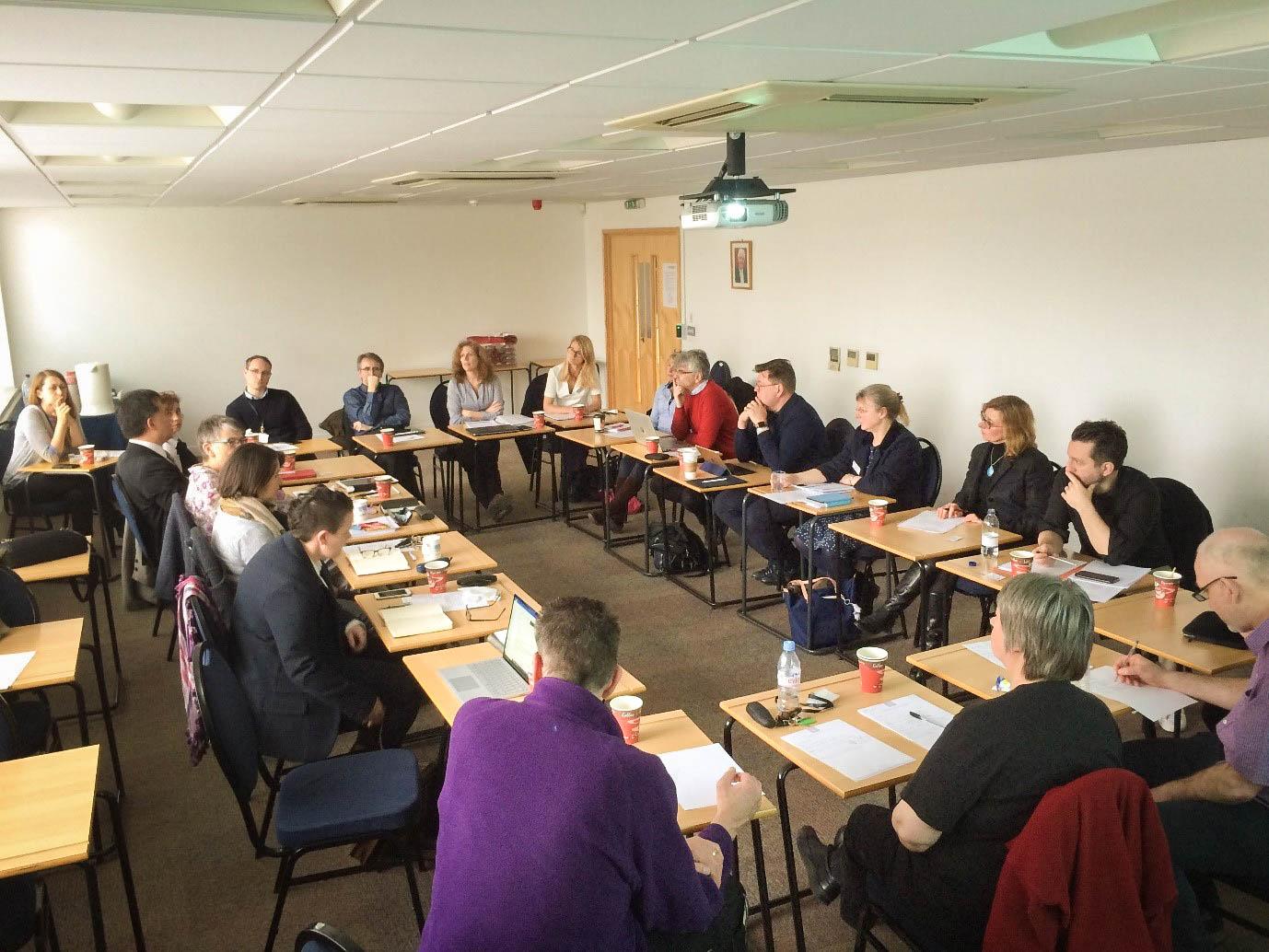Last week 22 representatives from various osteopathic institutions came together at the UCO for a discussion on research education and ethics. Represented organisations included the University College of Osteopathy (UCO), National Council of Osteopathic Research (NCOR), London School of Osteopathy (LSO), Institute of Osteopathy (iO), General Osteopathic Council (GOsC), European School of Osteopathy (ESO), College of Osteopaths (CoO) and the International College of Osteopathic Medicine (ICOM).
The day began with presentations from research representatives from the various osteopathic educational institutions, outlining each institution’s approach to factors such as course design, research methods, feedback and assessment, staffing, training, ethics and research publication.
Professor Dawn Carnes, Director of NCOR, summarised some of the common themes from the morning’s presentations as follows:
- Training and recruitment of supervisors
- Motivation and engagement of students
- Research-positive attitude
- Publication output and/vs learning outcomes
- Dissertation vs manuscript
- Type of research (clinical post grad usefulness)
- Assessment burden
- Building evidence-informed education
It was agreed that themes for further exploration included group projects vs individual projects and the integration of e-learning in undergraduate and supervisor training.
Further discussion between the represented OEIs explored the aim of research-related dissertations and how they translate into skills which can be implemented in practice. The importance of developing competence to critically appraise literature to inform clinical reasoning was stressed.
Individuals shared examples of teaching practice. One such example, used early in the curriculum, was inviting students to critically explore a health-related article from a popular newspaper and to explore the evidence which supported or undermined the claims made in the article.
Some of the possible solutions discussed in the morning session included more resources from OEIs to support and underpin curricular with research and scholarship; enhanced support for colleagues with in house training by enabling development to count as CPD hours; and the use of group projects to develop more substantial outputs from supervised projects.
The session resumed after lunch with presentations and discussions around research ethics in osteopathic education.
Discussion focused on the challenges of managing student research and the implications for Research Ethics Committees, e.g. feedback or governance. This was followed consideration of the implications for OEIs in reviewing, approval and governance of proposals submitted by practising osteopaths. Useful exchanges took place during which members discussed how challenges around research ethics would be managed internally within their own institutions.
We would like to thank everyone who attended the day for making it such an informative and productive session.

